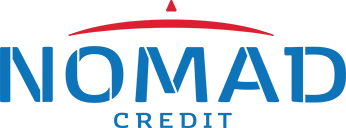Table of Contents
- Diploma Courses in Canada: Top Benefits
- Outlining Canada’s Diploma Courses: An International Glance
- Top Colleges for Diploma Courses in Canada
- Who is Eligible for Diploma Study in Canada?
- Scholarships for Diploma Courses in Canada
- Return on Investment: Salary Data for Diploma Courses in Canada
- Frequently Asked Questions
Choosing the right educational path is a critical decision for students and professionals alike, often at the crossroads of their careers. Diploma courses in Canada offer a unique opportunity for practical learning at affordable rates.
Whether you’re looking to enter the workforce quickly, upgrade your skills, or pave the way for further studies, a diploma from a Canadian institution can open doors to countless opportunities.
In this blog, we’ll explore why pursuing a diploma in Canada might be the perfect choice for your educational and career goals.
Diploma Courses in Canada: Top Benefits
| Cost-Effective Education Diploma courses in Canada are generally more affordable than degree programs. This makes them a great option for students who want quality education without the high costs associated with university degrees. | Shorter Duration Most diploma programs in Canada can be completed in one to two years, allowing students to enter the workforce faster compared to a traditional four-year degree program. |
| Practical, Career-Oriented Learning Diploma programs often focus on practical skills and industry-specific knowledge, preparing students for the job market immediately after graduation with co-op and internship opportunities. | Pathway to Further Education Diplomas can serve as a stepping stone to further education. Students can often transfer their credits towards a bachelor’s degree if they decide to continue their studies. |
| Work Opportunities After completing a diploma program, international students may be eligible for a Post-Graduate Work Permit, which allows them to work in Canada and gain valuable work experience. | Flexibility Canada offers a wide range of diploma courses in various fields, allowing students to choose a program that aligns with their career goals and interests. Many institutions offer part-time or online diploma programs, providing flexibility for students who may be working or have other commitments. |
Outlining Canada’s Diploma Courses: An International Glance
Earning your diploma certificate from a Canadian institution is an affordable way to find employment. With UG and PG courses in various fields, Canada welcomes international students with academically top-notch universities. Once they graduate, international students can explore job opportunities in various job roles.
| Course Type | Full-time Part-time Online |
| Course Levels | Undergraduate Postgraduate |
| Tuition Fee | CAD 15,000 – 30,000 |
| Average Salary | CAD 35,000 – 50,000 |
| Top Courses | 1. Business and Management 2. Information Technology (IT) 3. Engineering and Technology 4. Health Sciences 5. Hospitality and Tourism 6. Arts and Design 7. Media and Communications 8. Agriculture and Environmental Sciences 9. Education and Early Childhood 10. Social and Community Services 11. Law and Public Administration |
Top Colleges for Diploma Courses in Canada
Canada’s universities are globally renowned for academic excellence and course design. For diploma courses, the top institutions in Canada include the following:
| College | Average Tuition Fee |
| Humber College | CAD 13,000 – 21,000 |
| Centennial College | CAD 22,000 – 24,000 |
| Algonquin College Ottawa Campus | CAD 16,000 – 22,000 |
| Sheridan College Trafalgar Road Campus | CAD 16,000 – 20,000 |
| Fanshawe College | CAD 10,000 – 14,000 |
| Durham College | CAD 8,000 – 12,000 |
| University of Calgary | CAD 15,000 – 27,000 |
| McGill University | CAD 32,000 – 54,000 |
| Seneca Polytechnic | CAD 15,000 – 23,000 |
| Dalhousie University | CAD 10,000 – 15,000 |
Who is Eligible for Diploma Study in Canada?
Any high-school graduate with a standard academic score (above 50%) can apply for UG diploma courses in Canada. For PG diploma courses, an undergraduate degree or equivalent is typically required.
What Documents are Required for Diploma Study in Canada?
It is important to gather the relevant documents to complete your diploma application to Canada. The specific document checklist varies with universities. The table below shows the general set of documents required for a successful application.
| Proof of finances | Statement of Purpose (SOP) |
| Letter(s) of Recommendation (LORs) | Academic transcripts |
| Provincial Attestation Letter (PAL) | English proficiency (IELTS, TOEFL, PTE, or Duolingo) |
Scholarships for Diploma Courses in Canada
- Ontario Trillium Scholarships
- Niagara College scholarships
- Vanier Canada Graduate Scholarships
- Thompson Rivers University Scholarships
- George Brown College Scholarships
- Seneca College scholarship
Return on Investment: Salary Data for Diploma Courses in Canada
Diploma courses can be completed within a short time and enter into the workforce. Depending on your course, you can explore job opportunities in different job roles. The table below shows the average salary for different positions for diploma graduates in Canada.
| Job Role | Average Salary |
| Administrative Assistant | CAD 38,000 – 52,000 |
| Marketing Coordinator | CAD 43,000 – 56,000 |
| Human Resources Coordinator | CAD 45,000 – 58,000 |
| Supply Chain Analyst | CAD 51,000 – 65,000 |
| IT Support Analyst | CAD 47,000 – 67,000 |
| Computer Support Specialist | CAD 44,000 – 63,000 |
| Registered Practical Nurse (RPN) | CAD 50,0000 – 70,000 |
| Physiotherapy Assistant | CAD 32,000 – 43,000 |
| Mechanical Engineering Technician | CAD 37,000 – 51,000 |
| Tourism Marketing Coordinator | CAD 43,000 – 66,000 |
| Hotel Manager | CAD 45,000 – 66,000 |
| Digital Marketing Specialist | CAD 46,000 – 71,000 |
Ready to elevate your career goals? Connect with Nomad Credit and unlock seamless guidance on diploma courses in Canada. At Nomad Credit, we’ll evaluate your profile and provide tailored support with the admission process, education loan options, and study visa at zero cost. Achieve your vision – join Nomad Credit today!
Frequently Asked Questions
Which diploma courses are the best in Canada?
Diploma courses in all subjects are considered excellent in Canada. Nursing, Engineering Management, Business Administration, Computer Science & Information Technology, Supply Chain Management, Agricultural Science, Big Data Analytics, & Marketing.
What is meant by a 2-year diploma in Canada?
Diploma courses are usually short, spanning from 8 – 24 months. A two-year diploma course in Canada is usually of a postgraduate level with a duration of 24 months.
What is the duration of diploma courses in Canada?
Diploma courses in Canada are short. The average duration for diploma courses in Canada can be 8 – 24 months.
Do students get PR after studying diploma courses in Canada?
Diploma courses are eligible for a PR in Canada. After completing your course, you can apply for a PR and eventually settle in Canada.
Is IELTS compulsory for a diploma in Canada?
An English proficiency test is mandatory for English-taught programs in Canada. It can be IELTS, TOEFL, PTE, or Duolingo, depending on the institution’s acceptance.

